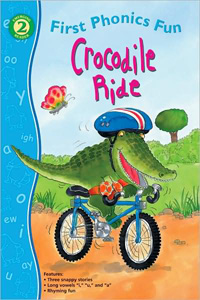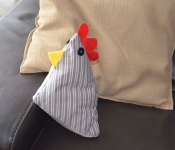Making giant leaps towards biligualism

So what’s behind the sudden change?
Initially the presence of another bilingual child in his class has helped to make him feel he is not the odd one out anymore. In fact it is typical of bilingual children not to want to be different from their peers and that’s why it is so important to attend playgroups in the minority language to avoid the feeling of being singled out. Also the other bilingual child was very comfortable with the second language, which pushed my son’s competitive nature to want to speak well.
His teacher has played an important part in making the bilingualism of the two children a positive aspect within the class and as she teaches English as well, she often addresses them in English.
The third factor that contributed to the change is the increased interest in football. It has become a weekly appointment to follow the progress of his favourite team in the premiership with his dad, which has become both a bonding moment between father and son and a full English affair.
Last but not least, he has learned to read so now he attempts to read each and every word he sees written. He even wants to read his bedtime stories, which are in English. I must admit the bilingual literacy was a strong concern of mine, but instead it turned out to be a positive factor rather than a problem. If you think about reading like decoding the alphabet letters joined together to form words, it is only natural that once you learn to read in one language you can transfer that skill to the next. This is exactly what has happened with a few adjustments to do here and there. Initially he tried to read English words as if they were Italian, but he could hear they made no sense and then he started to match the words with the sounds he knows. To help him with it we have been reading the First Reading Fun series, which work around the phonics to help children decode words with the same sound spelled in different ways. I have written about these books before, but it is only now that I see how effective they are to build confidence in children in the early stages of learning to read.

































With a preschooler and first grader, I’m in the market for good reading books. Thanks for the recommendation about the First Reading Fun series.
Hey, this gives me hope for the future Seriously, it’s great to hear that his bilingualism is improving as he gets older, as I’ve been getting a lot of warnings from friends with older kids than my own (4.5 and 2.5) that the minority language really goes down the drain once they go to school and get to have a social life of their own. We haven’t noticed that in our house just yet, but I’ve been worrying. It’s nice to see that it can work out – thanks!
Seriously, it’s great to hear that his bilingualism is improving as he gets older, as I’ve been getting a lot of warnings from friends with older kids than my own (4.5 and 2.5) that the minority language really goes down the drain once they go to school and get to have a social life of their own. We haven’t noticed that in our house just yet, but I’ve been worrying. It’s nice to see that it can work out – thanks!